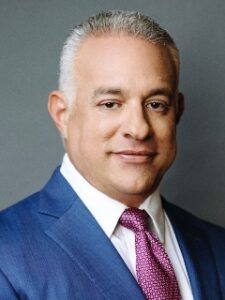Litigation that seeks to win Medicare reimbursements from insurance companies has become a huge business over the last decade, making one Miami lawyer a billionaire and causing expensive, ongoing legal headaches for property-casualty insurers.
But the federal law that allows third parties to gain double damages by spotlighting Medicare payments that should have been made by private insurers has its limits, a federal appeals court decided this week, answering some of the concerns that have been raised by insurance carriers in recent years.
In a class-action case that had been watched nationwide, the 4th U.S. Circuit Court of Appeals said Monday that the lead plaintiff, the widow of a deceased North Carolina UPS worker, has no standing to sue Liberty Mutual Insurance companies because she wasn’t really injured and had not lost any money.
“No matter what right or cause of action a statute may grant a plaintiff, she must still have an injury in fact to sue in federal court,” a panel of 4th Circuit judges wrote, citing a 2016 court ruling.
Yes, the Medicare Secondary Payer Act of 1980 requires private insurers in many cases to pay covered medical costs before Medicare chips in. It also allows parties to act on Medicare’s behalf to enforce the law, the court noted. But Article III of the U.S. Constitution mandates that plaintiffs must have standing in order to take that legal action.
“Congress may elevate harms that were previously insufficient to justify suit ‘to actionable legal status’ via statutory causes of action,” the court wrote. “But that does not mean that Congress can override Article III and expand federal court jurisdiction beyond its constitutional confines.”
Though its requirements are often pesky, legal standing “ensures that we, as judges, do not exceed the authority to decide cases and controversies conferred on us by the Constitution,” the appellate judges noted.
Attorneys familiar with Medicare reimbursement said the decision clarifies a 2018 4th Circuit opinion in Netro vs. Greater Baltimore Medical Center, a decision that the plaintiffs in Penegar had heavily relied on. The ruling this week also could help put the brakes on growing efforts by some third parties to capitalize on the MSP Recovery Act, similar to what a Miami company and law firm has done in recent years en route to gaining billions of dollars in damage awards.
The North Carolina case began in 2013, when Johnny Ray Penegar Jr., of Monroe, was diagnosed with mesothelioma. He filed a workers’ compensation claim against his employer, UPS, and its insurance carrier, Liberty Mutual. Before the claim was finalized, Penegar died in 2015.

The North Carolina Industrial Commission, which handles workers’ comp disputes, awarded his widow the cost of treating the disease while Penegar was alive, as well as death benefits prescribed by state law. In 2020, the widow, Carra Jane Penegar and Liberty Mutual settled for $18,500.
A few weeks later, Mrs. Penegar filed a Medicare recovery suit in federal court in the Western District of North Carolina against Liberty Mutual, claiming the insurer had not properly reimbursed Medicare for her husband’s medical care. Liberty Mutual pushed back, contending that it had, in fact, fully paid Medicare on an outstanding lien. The carrier also argued that Carra Penegar lacked standing and was uninjured, per the settlement agreements.
The federal district court agreed with Liberty Mutual and dismissed the case. Penegar appealed and the 4th Circuit upheld the lower court. The difference, appeals court Judge Julius Richardson wrote, is that in the 2018 Netro case, the insurance company had been ordered to Medicare directly. In the Penegar case, Liberty Mutual had paid Penegar in the claim settlement, the court noted. The Centers for Medicare and Medicaid Services had sent the widow a letter demanding reimbursement, but she never had to pay that.
“Since Liberty Mutual was not obligated to pay Penegar the funds owed to Medicare, the failure to pay did not injure her like it did the plaintiff in Netro,” the 4th Circuit opinion reads.
The court agreed with some of the arguments made by Tampa attorneys Matt Lavisky and Mihaela Cabulea, of the Butler Weihmuller Katz Craig law firm. Although the lawyers are in Florida, they were asked by Liberty Mutual to help represent them in the Penegar case: For the past decade, Lavisky has been one of the lead attorneys for insurance companies fighting double-damage Medicare recovery lawsuits brought by third parties, many of them represented by famed Miami attorney John Ruiz.
Lavisky, a recent president of the Florida Defense Lawyers Association, declined to comment on the Penegar case. But in their appellate brief, Lavisky and Cabulea suggested that Penegar and her attorney were hoping to cash in on the financial rewards offered by the Medicare Secondary Payer Act.
“This is one of the hundreds of lawsuits filed by uninjured plaintiffs around the country incentivized presumably by the prospect of recovering double damages under the MSP Act,” the brief reads.
But as previous courts have found, the MSP Act is not a whistleblower or qui tam statute, which would have allowed Penegar to sue in the federal government’s name for violation of a public right. Also, the Butler lawyers argued, Penegar’s team had never informed Liberty Mutual that Medicare had asked her in 2020 to repay the $18,500. If Liberty Mutual had known, it would have quickly so paid the lien.

“Instead, Penegar rushed to the court and filed suit eighteen days later, presumably incentivized by the prospect of recovering double damages,” Lavisky and Cabulea wrote.
The double damages allowed by the MSP statute had received little notice until the mid-2010s, when Ruiz began filing thousands of lawsuits against auto insurers. His firm, then known as MSP Recovery, now LifeWallet, has argued that Medicare Part C companies, or Medicare Advantage firms, which provide a supplemental insurance plan for Medicare beneficiaries, had for years covered medical costs after accidents – costs that should have been paid by the primary insurers, the auto insurance carriers.
Ruiz reportedly became a billionaire from the litigation, purchasing a Boeing 767 airliner and pledging to help build the University of Miami a new football stadium, according to news reports.
But by this summer, the publicly traded LifeWallet had run into some financial trouble.
Last week, Ruiz told investors that it is doubtful that the company will be able to continue operating, the Miami Herald reported. The company reported a net loss of more than $200 million for the second quarter of 2022.
It’s unlikely that the 4th Circuit ruling this week will have much impact on Ruiz’ company’s litigation against insurers. The Medicare supplement companies, unlike the widow Penegar, were, in fact, financially injured when they were not reimbursed by the auto insurers, lawyers have said.
Ruiz could not be reached for comment Tuesday. The full 4th Circuit opinion can be seen here.
Related: MSP Recovery Scores Another Appeals Court Victory Against Auto Insurers
Florida’s Notice-of-Intent Trips Up Medicare Recovery Firm in Suits Versus Insurers
Medicare Recovery Firm that Sued Auto Insurers Said to be Under Investigation
Was this article valuable?
Here are more articles you may enjoy.



 What Analysts Are Saying About the 2026 P/C Insurance Market
What Analysts Are Saying About the 2026 P/C Insurance Market  Winter Storm Fern to Cause Up to $6.7B in Insured Losses
Winter Storm Fern to Cause Up to $6.7B in Insured Losses  AIG, Chubb Can’t Use ‘Bump-Up’ Provision in D&O Policy to Avoid Coverage
AIG, Chubb Can’t Use ‘Bump-Up’ Provision in D&O Policy to Avoid Coverage  Uber Jury Awards $8.5 Million Damages in Sexual Assault Case
Uber Jury Awards $8.5 Million Damages in Sexual Assault Case 


